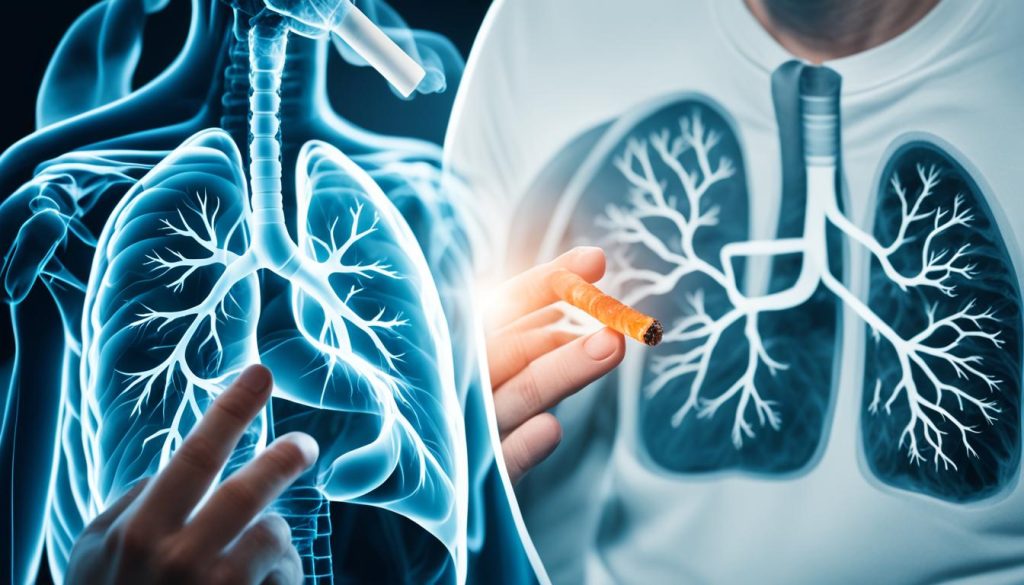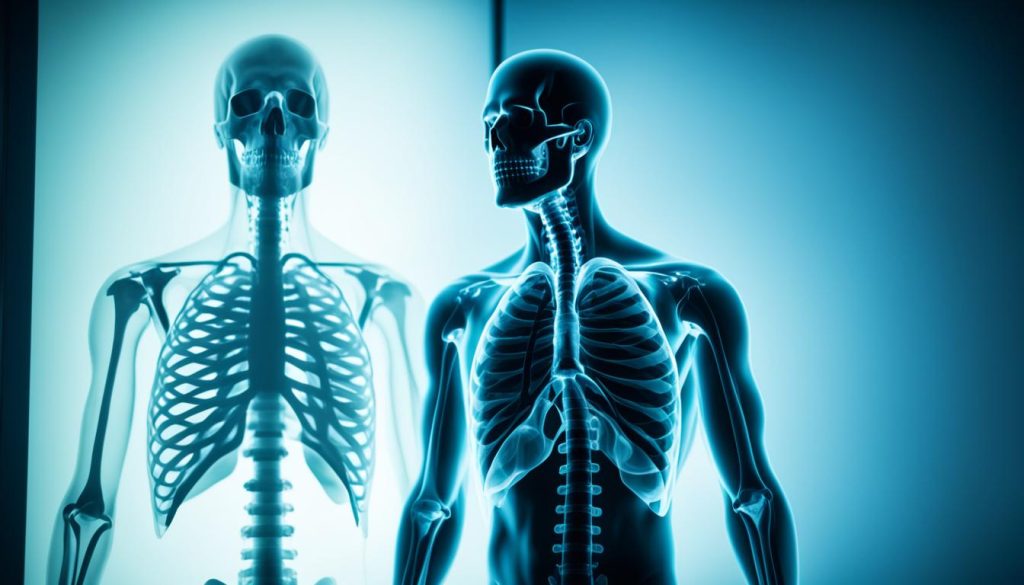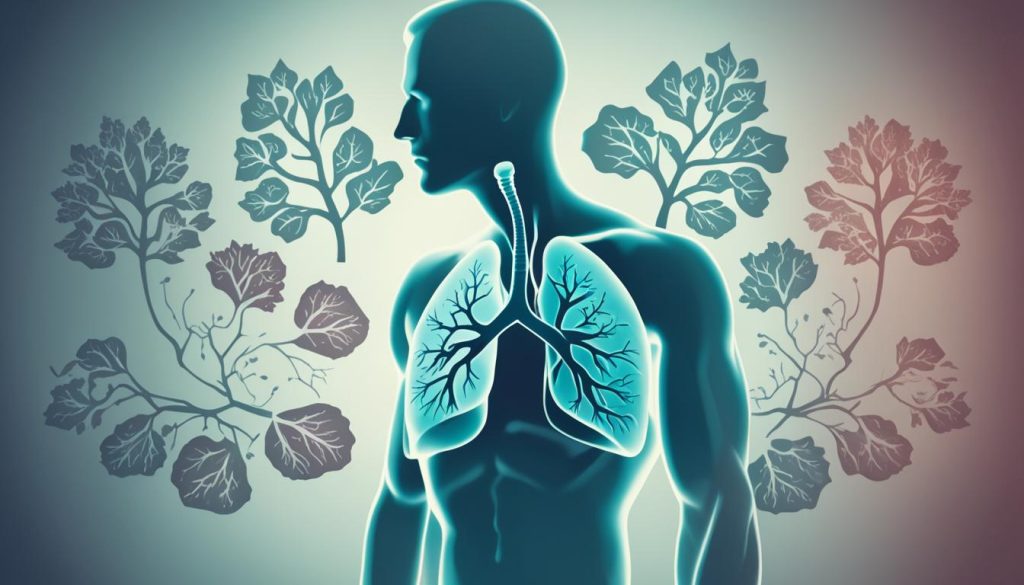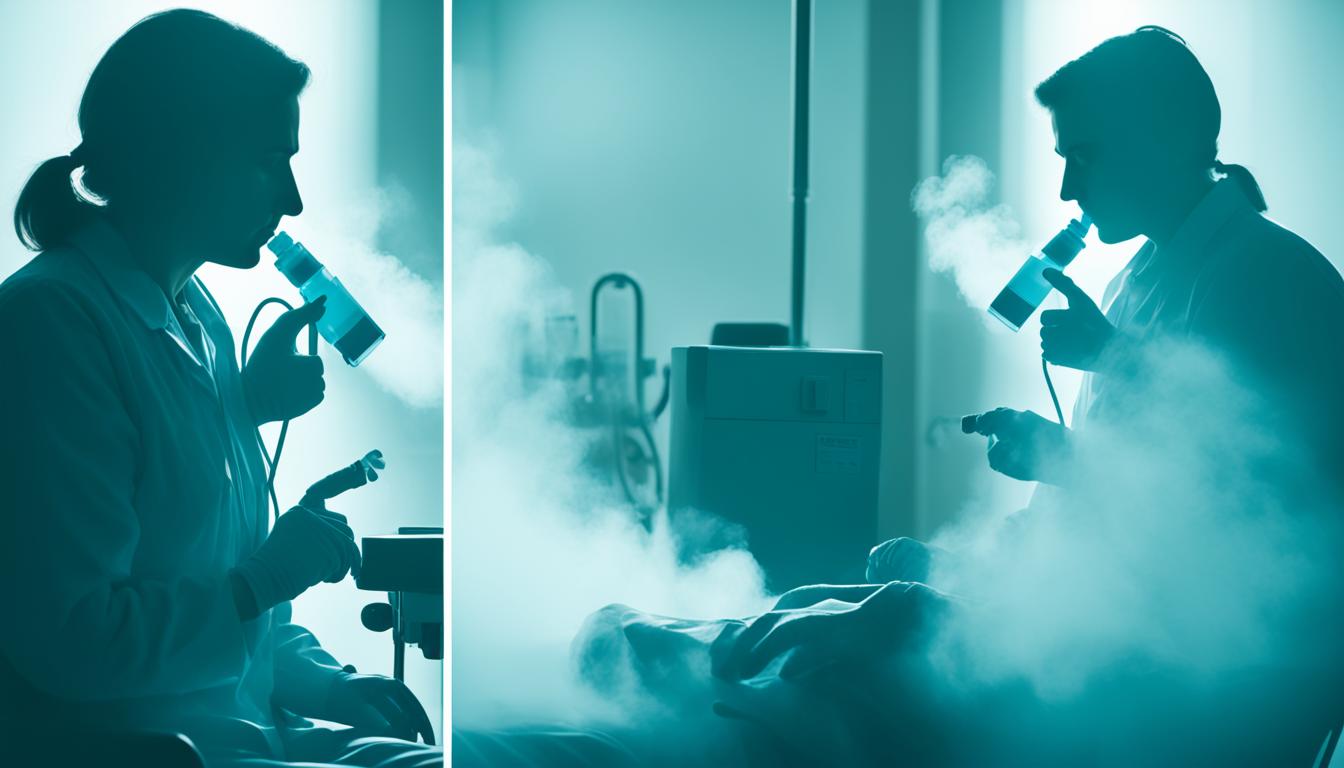Lung cancer is a serious condition that can often go undetected in its early stages. However, being aware of the symptoms is crucial in order to seek medical attention promptly. Here are 4 symptoms of lung cancer that you should be aware of:
- Persistent cough: A cough that lingers for an extended period of time, especially if it worsens over time, could be a sign of lung cancer.
- Coughing up blood: If you notice blood in your phlegm or mucus, it is important to get it checked out by a healthcare professional.
- Chest pain: Chest pain that is aggravated by deep breathing, coughing, or laughing should not be ignored and should be evaluated by a doctor.
- Shortness of breath: Difficulty breathing or shortness of breath that persists should be taken seriously and investigated further.
These symptoms can also be caused by other conditions, but if you experience any of them, it is recommended to consult a doctor for further evaluation. Early detection of lung cancer can greatly improve outcomes and increase the chances of successful treatment. Remember, the key is to be aware and proactive about your health.
4 Symptoms of Lung Cancer That You Should Be Aware of
When it comes to identifying lung cancer, recognizing the common symptoms is crucial for early detection and timely treatment. While these symptoms can also be associated with other conditions, it’s important not to ignore them, especially if they persist or worsen over time. Here are the most common symptoms of lung cancer:
- Persistent cough: A cough that doesn’t go away or worsens over time is one of the primary signs of lung cancer. This persistent cough may be accompanied by a change in the cough itself, such as producing blood or rust-colored phlegm.
- Chest pain: Lung cancer can cause chest pain that is aggravated by activities like deep breathing, coughing, or laughing. This pain may feel sharp, dull, or aching in nature.
- Hoarseness: Development of a hoarse or raspy voice can be an indication of lung cancer. This symptom occurs due to the involvement of the vocal cords or nearby structures.
- Loss of appetite and unexplained weight loss: Lung cancer can lead to a significant loss of appetite and unintentional weight loss. If you’re experiencing a noticeable decrease in appetite and dropping pounds without a specific cause, it’s essential to get evaluated.
- Shortness of breath: Feeling breathless or experiencing difficulty in breathing can be a symptom of lung cancer. The cancerous growth can obstruct the airways, limiting the flow of air in and out of the lungs.
- Fatigue: Persistent fatigue, even with ample rest, can be an early indication of lung cancer. The cancer cells consume energy and disrupt normal bodily functions, leading to excessive tiredness.
- Recurring infections: Lung cancer weakens the immune system and makes individuals more susceptible to infections. If you are frequently battling bronchitis or pneumonia that won’t resolve, it could be a potential warning sign.
- Wheezing: Unexplained wheezing or whistling sounds during breathing can be associated with lung cancer. It occurs due to the narrowing of the airways caused by the presence of a tumor.
It’s important to keep in mind that these symptoms are not exclusive to lung cancer and can also be caused by other conditions. However, if you experience any of these symptoms, it is crucial to seek medical evaluation to determine the underlying cause. Early detection and prompt treatment can significantly improve outcomes for individuals with lung cancer.

| Symptom | Description |
|---|---|
| Persistent cough | A cough that doesn’t go away or worsens over time |
| Coughing up blood or rust-colored phlegm | Spitting out blood or coughing up phlegm that is discolored |
| Chest pain | Pain in the chest that is aggravated by specific activities |
| Hoarseness | Development of a raspy or hoarse voice |
| Loss of appetite and unexplained weight loss | Decreased appetite and unintentional weight loss |
| Shortness of breath | Difficulty breathing or feeling breathless |
| Fatigue | Persistent tiredness and lack of energy |
| Recurring infections | Frequent infections that don’t resolve |
| Wheezing | Unexplained whistling sounds during breathing |
Less Common Symptoms of Lung Cancer
In addition to the common symptoms mentioned earlier, there are some less common symptoms that can be associated with lung cancer. It is important to be aware of these less common symptoms and seek medical evaluation if they occur.
- Infections: Bronchitis and pneumonia that do not resolve or keep recurring
- New Onset of Wheezing
- Bone Pain
- Nervous System Changes: Headaches, weakness or numbness in an arm or leg, dizziness, balance problems, or seizures due to cancer spread to the brain
- Jaundice: Yellowing of the skin and eyes due to cancer spread to the liver
- Swelling of Lymph Nodes: In the neck or above the collarbone
While these symptoms are less common, they can still be indicative of the presence of lung cancer. If you experience any of these symptoms, it is important to consult a healthcare professional for further evaluation and testing.

Syndromes Associated with Lung Cancer
Some lung cancers can cause specific syndromes, which are groups of symptoms that are characteristic of the disease. These syndromes include:
- Horner syndrome: Associated with cancers of the upper part of the lungs, it can cause drooping or weakness of one upper eyelid, a smaller pupil on the same side of the face, and reduced sweating on the same side of the face.
- Superior vena cava syndrome: Occurs when a tumor in the lung presses on the superior vena cava, a large vein that carries blood from the head and arms to the heart. This can result in swelling of the face, neck, arms, and upper chest, as well as trouble breathing.
- Paraneoplastic syndromes: Seen in some cases of lung cancer, these syndromes occur when the tumor produces hormone-like substances that affect distant organs. Symptoms can include:
| Paraneoplastic Syndromes | Symptoms |
|---|---|
| SIADH (syndrome of inappropriate anti-diuretic hormone) | Fatigue, muscle weakness, and confusion |
| Cushing syndrome | Weight gain and fluid retention |
| Hypercalcemia | Frequent urination, thirst, and weakness |
These syndromes, although less common, can be indicative of the presence of lung cancer and should be evaluated by a medical professional.

Unexpected Signs and Symptoms of Lung Cancer
In addition to the common and less common symptoms, lung cancer can also present with unexpected signs and symptoms. While these may not immediately be associated with the disease, it is important to be aware of them as they can be indicative of lung cancer and should prompt further medical evaluation.
Arm/Shoulder Pain
Some individuals with lung cancer may experience arm or shoulder pain, which can be caused by the spread of the cancer to nearby tissues or nerves.
Eye Problems
Lung cancer can sometimes cause eye problems such as a smaller pupil, drooping eyelid, and reduced sweating on one side of the face. These symptoms are known as Horner syndrome and can occur when the cancer affects the nerves that control the pupil and sweat glands.
Balance Problems
In rare cases, lung cancer can lead to balance problems, which may result from cancer spread to the brain or nervous system.
Swelling of the Neck, Arms, or Upper Chest
Superior vena cava syndrome is a condition that can occur when a tumor in the lung presses on the superior vena cava, a large vein that carries blood from the head and arms to the heart. This can cause swelling in the neck, arms, or upper chest.
Weight Gain or Loss
Unexplained weight gain or loss can sometimes be a sign of lung cancer. Weight loss is more commonly associated with the disease, but weight gain can also occur in some cases.
Blood Clots
Lung cancer can increase the risk of developing blood clots, which can cause symptoms such as pain, swelling, or redness in the affected area.
Bone Pain
In advanced stages of lung cancer, the disease may spread to the bones, leading to bone pain that can be persistent and worsen over time.
Clubbed Fingers
Clubbing of the fingers refers to changes in the nails and fingertips that can occur as a result of decreased oxygen levels in the blood. This can be a sign of lung cancer.
Digestive Problems
Sometimes, lung cancer can cause digestive problems such as difficulty swallowing, nausea, or changes in bowel habits.
Extreme Thirst and Frequent Urination
Lung cancer can rarely produce substances that affect hormone levels, leading to symptoms such as extreme thirst and frequent urination.
Fatigue
General fatigue and tiredness can be associated with lung cancer.
Heart Problems
In some cases, lung cancer can affect the heart and lead to symptoms such as irregular heartbeats, palpitations, or chest discomfort.
Quitting Smoking Suddenly
Although quitting smoking is generally beneficial for health, sudden and unintended quitting without any apparent reason could be a sign of underlying lung cancer.
Swollen Breasts in Men
In rare cases, lung cancer can cause hormonal changes that result in enlarged or swollen breasts in men.
Mental Health Issues
Anxiety, depression, and even dementia can be associated with lung cancer. These mental health issues may arise as a result of the emotional and physical toll of the disease.

Being aware of and recognizing these unexpected signs and symptoms of lung cancer is crucial for early detection and prompt medical intervention. If you experience any of these symptoms or have concerns about your lung health, it is important to consult a healthcare professional for further evaluation and guidance.
Conclusion
Recognizing the symptoms of lung cancer is vital for early detection and timely medical intervention. While these symptoms may also be indicative of other conditions, it is crucial not to overlook them, particularly if they persist or worsen over time. If you experience any of the common, less common, or unexpected signs of lung cancer, it is highly recommended to consult a healthcare professional for a thorough evaluation and appropriate testing. Remember, early detection can significantly improve treatment outcomes and increase the chances of successful management of lung cancer.







